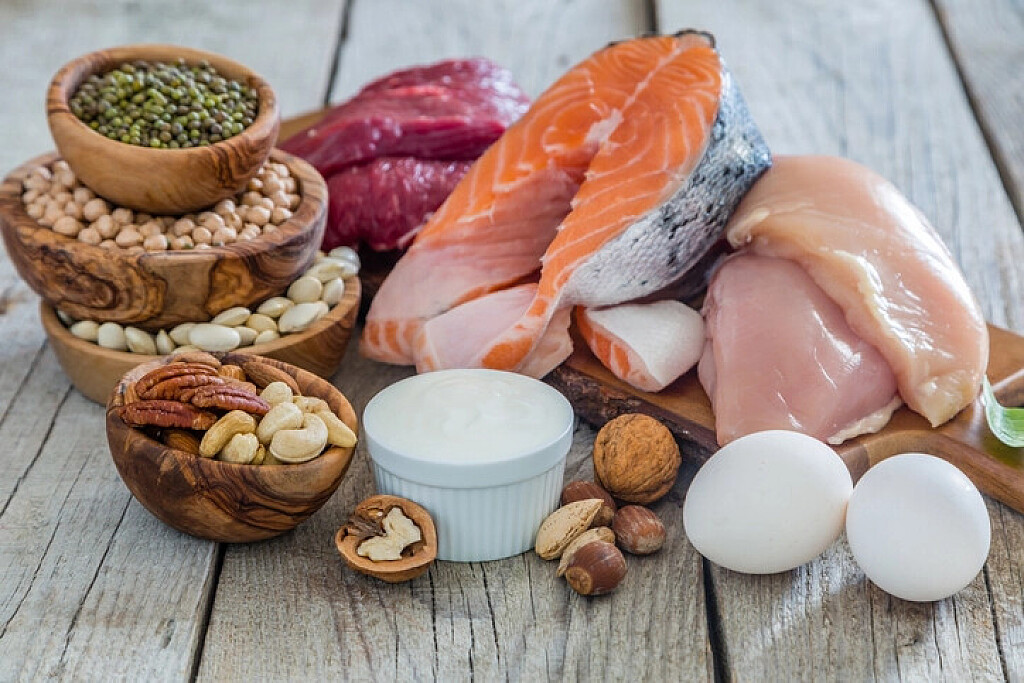Running News Daily
Running News Daily is edited by Bob Anderson. Send your news items to bob@mybestruns.com Advertising opportunities available. Train the Kenyan Way at KATA Kenya and Portugal owned and operated by Bob Anderson. Be sure to catch our movie A Long Run the movie KATA Running Camps and KATA Potato Farms - 31 now open in Kenya! https://kata.ke/
Index to Daily Posts · Sign Up For Updates · Run The World Feed
Runners: you’re probably not eating enough protein
If you’re a runner or live an active lifestyle, you’re probably underestimating how much protein you need. Registered dietician and author Pamela Nisevich Bede touts the importance of staying on top of your protein needs and intake in her book Fuel the Fire.
Olympian and half-marathon record holder Ryan Hall has said “I wish I would have eaten more protein. I bought into the whole ‘your body can only absorb twenty grams of protein in one sitting line and wasn’t recovering optimally.” After Hall began working with a nutritionist, he discovered he was deficient in protein, and adjusted his intake: a few months later, Hall ran his best marathon ever.
“Your best bet is to consume a variety of proteins from animal and plant sources throughout the day,” Bede says. She offers some suggestions on how to dial up your protein intake and improve your performance and recovery.

Protein
Proteins are formed on building blocks called amino acids, and they are essential in keeping your immune system functioning, bones and tendons strong, healthy skin, hair and nails, and more. Exercise demands support from protein, and some research suggests athletes may require at least twice the recommended daily amount. If you are not consuming enough overall calories, protein is particularly critical, because your body will use some protein for energy–reducing the amount of protein available for other tasks.

Amino acids found in protein are often called the ‘building block’ of muscles and are key for both muscle growth and for rebuilding muscles after exercise-induced breakdown. Protein can be taken in from both animal and vegetable sources; if you’re considering changing your diet to plant-based, be aware that you’ll need protein from a range of sources (eat a varied diet).
Make sure every meal includes a protein source
Double-check what you have on your plate every time you sit down to eat (or grab a snack on the go). Depending on your running mileage and general activity level, you may need more, but Bede says that in general for athletes a snack should have at least 15 grams of protein, and a meal should include at least 30 grams.
The recommended amount of protein in both Canada and the U.S. is 0.8/kg/day, which, Bede says, is “possibly enough to support health and the activities of daily living, but is definitely inadequate to support performance.” If you’re headed for a second helping of food, opt for a protein-rich choice instead of a starch–a scoop of lentils or a small chicken breast are both lean protein options.
Plan it out, and switch it up
Plan out your meals in advance if possible to make sure you’re taking in enough protein throughout the day. If you’re vegan or simply prefer plant protein, you need to make sure you have a variety throughout the day. Bede suggests vegans consider supplementing with branched-chain amino acids (BCAAs) to ensure an adequate intake.
While plant-based protein consumption needs to be done with awareness, Bede adds that “longevity studies suggest diets including higher intakes of plant-based vs. animal-based protein and fat often leads to better health outcomes.”
Protein powders for the win
If you’re having a hard time eating enough protein, Bede says that protein powders are an appropriate option to bring into your diet, and can be added to smoothies and yogurt–options are endless. Choosing a protein powder carefully is important: avoid any brand that has ‘proprietary blends’ and supplements added, and watch for extra sugars and fat. The ideal protein powder should have 20–30 grams of protein per serving.
Protein needs vary across a spectrum, Bede says, and your personal requirements (including the amount you exercise) plus the overall quality of the protein of your diet should be considered: consulting with a registered dietician to assess your personal protein needs can be a great way to jump-start proper protein fuelling.
by Running Magazine
Login to leave a comment




